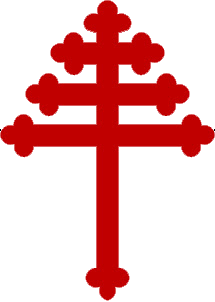'Al Bet Lhém مررت على بيت لحم
ܥܰܠ ܒܶܝܬ ܠܚܶܡ ܕܺܝܗܽܘܕܳܐ ܥܶܒ̇ܪܶܬ
مررتُ على بيتَ لحمَ اليهوديّة I passed through Bethlehem of Judea Je suis passé par Bethléem de Judée ’al beyt leḥem d-yehuda ‘eḇretܘܩܳܠܳܐ ܕܢܽܘܨܪ̈ܳܬܳܐ ܫܶܡ̇ܥܶܬ ܚܰܒܺܝ̈ܒܳܬܳܐ
فسمعْتُ صوتَ الأناشيدِ العزيزة I heard the sound of beloved hymns J’ai entendu le son des hymnes bien-aimés waqala d-noshrate shem’et ḥabibataܘܰܐܚ̣ܕܰܢܝ ܕܽܘܡܳܪܳܐ
وأخَذَني العَجَب And I was taken by wonder Et j’ai été pris par l’émerveillement wa’ḥdani d-umaraܩܳܠܳܗ̇ ܕܡܰܪܝܰܡ ܕܰܡ̇ܢܰܨܪܳܐ ܠܰܒܪܳܗ̇
صوتُ مريمَ الّتي تناغي ابنَها The voice of Mary who speaks tenderly to her son La voix de Marie qui parle tendrement à son fils qolo d-Maryam d-menṣra labraܫܦ̣ܰܪ ܠܳܟ ܒܶܪܝ ܘܰܗܘܺܝ̇ܬ ܐܶܡܳܟ
حَسُنَ لكَ يا ابني فصرْتُ أمَّكَ How beautiful you are my son, and I became your mother Comme tu es beau mon fils, et je suis devenue ta mère shfar lak bari w-hwayet emakܘܕܰܐܒܽܘܟ ܡܰܢܽܘ
من هو أبوك؟ Who is your father? Qui est ton père ? w-d’abok manuܐܶܡܳܟ ܠܳܐ ܪܓܺܝܫܳܐ
أمُّكَ لا تدري Your mother does not know Ta mère ne sait pas ’emak la ragisha